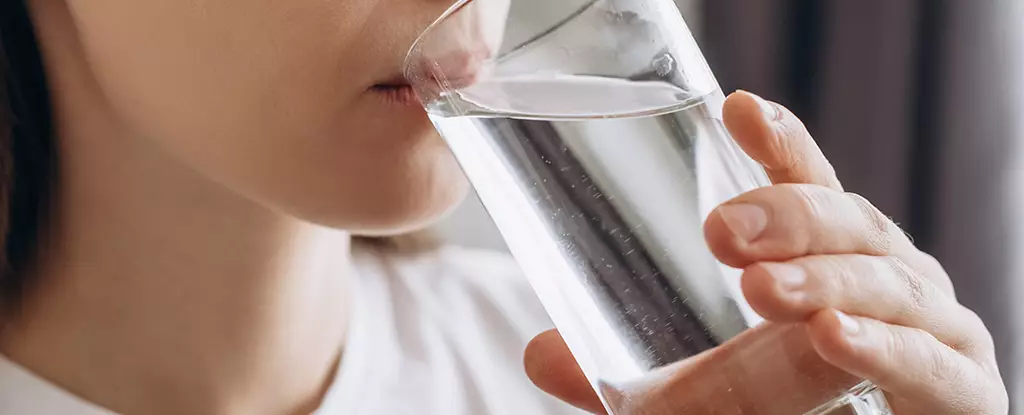

As we go about our daily lives, tiny fragments of microplastics are infiltrating our bodies in alarming quantities. These microplastics are entering our systems mainly through the food and drink that we consume on a daily basis. Scientists have conducted research that sheds light on this issue and have uncovered a simple yet effective method for removing these microplastics from water.
A team of researchers from Guangzhou Medical University and Jinan University in China conducted experiments involving soft water and hard tap water, which contains a higher concentration of minerals. By adding nanoplastics and microplastics (NMPs) to the water, boiling the liquid, and then filtering out any precipitates, the researchers were able to remove up to 90 percent of the NMPs in some cases. The effectiveness of the process varied depending on the type of water used for the experiment.
The implications of this research are significant as the simple boiling and filtering method can help reduce the intake of NMPs through water consumption. The process is easy to carry out and can be done using common household items found in most kitchens. Removing a greater concentration of NMPs from hard tap water, which naturally accumulates limescale as it is heated, highlights the effectiveness of this method in purifying water.
The researchers noted that even in soft water, where calcium carbonate is less dissolved, approximately a quarter of the NMPs were successfully removed through this boiling and filtering process. The use of a standard filter, such as a stainless steel mesh used for straining tea, can effectively remove any plastic particles encrusted with lime. This sustainable solution offers hope for reducing global exposure to NMPs and safeguarding human health.
Research indicates that drinking boiled water could serve as a viable long-term strategy for decreasing NMP exposure on a global scale. While some regions already practice the tradition of drinking boiled water, the researchers hope that this method will become more widespread as plastic pollution continues to pose a threat to the environment and human health.
The detrimental effects of microplastics on human health are still not fully understood, but studies have linked them to disruptions in the gut microbiome and antibiotic resistance. The research team responsible for this study is advocating for further investigations into how drinking boiled water can help keep artificial materials out of our bodies. By expanding their research to include a larger number of samples, the researchers aim to establish a solid foundation for combating the harmful effects of microplastics.
The infiltration of microplastics into our bodies through food and drink consumption poses a significant risk to human health. The development of a simple and effective method for removing these microplastics from water offers hope for reducing exposure and safeguarding our well-being. As we continue to grapple with the challenges posed by plastic pollution, it is crucial to explore sustainable solutions like drinking boiled water to mitigate the impact of microplastics on our health.
A groundbreaking expedition led by an international research team, featuring esteemed scientists from the University…
The pursuit of coherent control over wave transport and localization stands as a monumental challenge…
In recent astronomical explorations, researchers have unearthed a striking phenomenon emanating from a distant corner…
The quest for sustainable practices within the chemical industry is more critical than ever. Researchers…
In the complex interplay of human health, the relationship between the gut and the brain…
The relentless drive for sustainable energy solutions has fueled remarkable advancements in solar technology, with…
This website uses cookies.